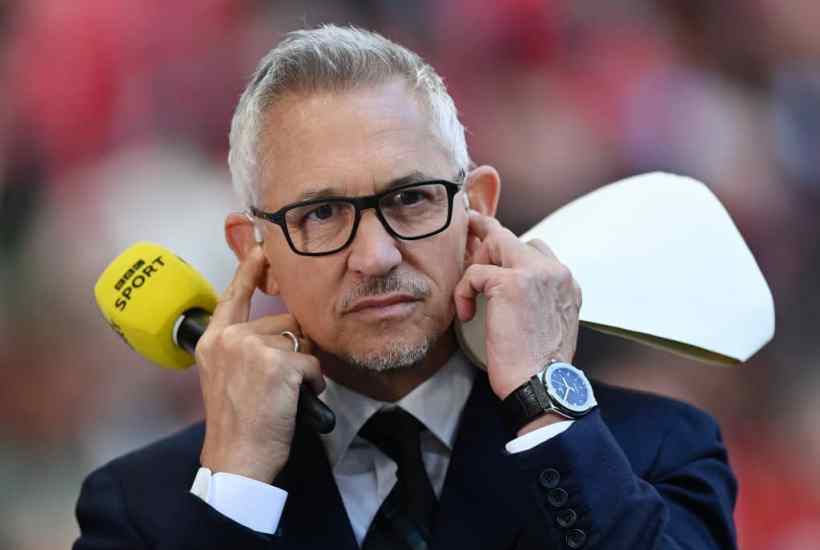Gary Lineker is the BBC’s top earner: he was paid £1.36m last year. The popularity of Match of the Day, the programme he hosts, is often given as the reason for that astronomical pay cheque. Yet the reality is that most fans tune in to watch the goals, not to hear Lineker’s presentation.
Lineker, however, insists that he has never had it easy. In a podcast interview, the former England footballer says that he suffered racist abuse at school and during his career because of his ‘darkish skin’. It’s appalling if Lineker really was picked on for his skin colour, but it’s unclear why Lineker is telling us this now. ‘I wouldn’t ever name any names,’ he says of those who abused him. Why not? Should those who face similar unacceptable abuse do the same as Gary and keep schtum about their abusers? Surely if we are to kick racism out of football it’s better to name and shame the perpetrators.
Lineker also claimed that, without football, he might have been picked on in the playground. As a ‘tiny, geeky kid’ in Leicester, Lineker told the High Performance Podcast his life wouldn’t have been so rosy:
‘Without being good at sport, life would have been very different for me because I think I would have been bullied at school.’
The truth is that Lineker’s talent on the pitch means we will never know whether what he is saying is true. Yet whether he would have been targeted in the playground or not, hearing Lineker pose as a victim is a bit much.
Lineker should think carefully about what message he is trying to send here. Are those poor kids who do get picked on in the playground meant to take solace from the fact that, without his talent, Lineker might have been one of them? If so, it’s hardly much reassurance for the chubby boy who isn’t good at football. Lineker seems to be telling such children: ‘Don’t worry, I almost know how you feel’.
Lineker’s football career has earned him untold millions, adulation on the pitch, lucrative corporate deals, a post-football broadcasting job, a huge following on Twitter, a jet-set lifestyle and at least one beautiful house (as well as an environmentally-friendly electric Mini). Rather than focus on these ups though, Lineker wants to talk about the times where everything hasn’t gone right. On the podcast, he says:
‘I don’t think you can really get to the top of something without really believing in yourself, and I did believe in myself. But I didn’t see myself on the same level as the other great players.’
Of course, if Lineker didn’t see himself on the ‘same level’ as other greats, that might have been with good reason. But whatever he really meant, Lineker’s words are revealing. He clearly sees himself in the pantheon of footballing idols, even though he has had more wives than World Cup wins.
Yes, Lineker was a talented footballer whose greatest achievement was managing to avoid getting booked, but hearing him pose as a victim – or listening to his claims of imposter syndrome – are hard to take.
Got something to add? Join the discussion and comment below.
Get 10 issues for just $10
Subscribe to The Spectator Australia today for the next 10 magazine issues, plus full online access, for just $10.




















Comments
Don't miss out
Join the conversation with other Spectator Australia readers. Subscribe to leave a comment.
SUBSCRIBEAlready a subscriber? Log in